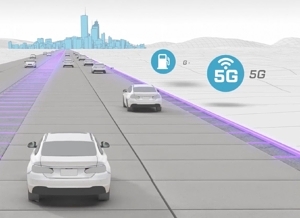We live in an age where everything, from smart cars to kitchen and bedroom fittings, can literally talk to you through an AI-powered IoT ecosystem. Yet, somewhere in midst of the ongoing ‘IoT gold rush’, the humble roadways have been forgotten. This is why Kansas City-based startup, Integrated Roadways, has turned its attention to smart roads to demonstrate just how state-of-the-art technology might improve driver experience.
Having recently been awarded a $2.75 million contract for a five-year smart road project, by the Colorado Department of Transportation (CDOT), the smart roads technology provider is now tasked with setting-up ‘intelligent’ highways that save lives.
Safety First with Smart Roads
This technology seeks to remedy the high incidence of road accidents in the US, over the past several years, due to lack of foresight and poor infrastructural maintenance.
In partnership with Kiewit Infrastructure Company, Cisco Systems, WSP Global, and Wichita Concrete Pipe, Integrated Roadway’s patented Smart Pavement™ will be installed on the accident-prone US285 highway of ‘The Centennial State’. Once fitted and calibrated, the smart road will be capable of warning drivers, in real-time if their vehicle accidentally careens off the road or immediately alert the ambulance in case of a collision.
A thought leader in smart road technologies, Integrated Roadways’ natural next step would be to harness such traffic data to locate problem areas on the highway. Once identified, local authorities can introduce infrastructural changes to prevent similar accidents from happening in the future.
Its inbuilt features such as pavement condition indexing indicate the general condition of a road section, while permanent vehicle counts measure traffic volumes. Together, these functions monitor the wear & tear of roads and can potentially update officials when the need for safety improvements in infrastructure arises.
Tim Sylvester, founder, Integrated Roadways, looks at Smart Pavement™ technology as a means to change the very foundations of transport safety. He seeks to achieve this by offering smart road attributes that enable real-time identification of vehicle positions and behaviours, access to dynamic traffic information, and even automatic notification for accidents.
Smart Road or Smartphone: Who Can Tell?
Sensitive to your car’s movement; precast smart road sections have the capability to capture the vehicle’s speed and direction just like a smartphone detects finger movement on the touchscreen. The pavement then sends off this data to servers that analyze the movement, through various algorithms.
This functionality is supported by a unique vehicle detection loop present within each interlocking smart road section that senses tyre position and movement. Additionally, its four in-built routers connect your vehicle to the internet to provides real-time information to drivers about traffic, road conditions and accidents.
So Smart, They Pay for Themselves
Not only is such life-saving technology innovative, it’s also very real and ready to become a mainstream component of our day to day lives – owing to the brains behind Integrated Roadways.
While there have previously been other smart road projects, all of them have faced one big road-block (pun intended) to scaling up – exorbitant costs. That’s until Integrated Roadways announced its sustainable Smart Pavement™ technology that intends to monetize valuable traffic and usage data. The company believes that, just like a smartphone, smart roads too can act as receptacles/platforms for unlimited apps & Value Added Services (VAS). Then, private app development or integration can become a source of revenue for these roads.
Through leasing agreements too, these intelligent pavements can earn money from private sector service providers. Additionally, Integrated Roadways claim to be 95% cheaper to install than traditional highways. Talk about being easy on the taxpayers’ pockets.
It also doesn’t hurt that these modular high-tech concrete pavement sections last four times longer than the usual asphalt pavements. Additionally, new features can be added with ease, while each individual slab can be effortlessly removed for repair or servicing. Such life-elongating features go a long way towards reducing the need for costly tech interventions on the intelligent pavements.
Sylvester envisions a future where the road is able to self-fund its maintenance and implementation costs by selling traffic data, internet connectivity, and other allied services to third-parties.

The Future of Smart Roads
Apart from road safety, Integrated Roadways’ trademarked Smart Pavement™ technology allows for highly-accurate navigation functionality for Level 4 autonomous vehicles (self-driving cars). It can even connect smart cities with high-speed data transfer.
In the near future, these smart roads are expected to add-on features that support AI-powered snow and ice melt and wireless charging of electric vehicles.
By harnessing the latest digital technologies & fibre optic connectivity, Integrated Roadways is fully equipped to revolutionize transport infrastructure and facilitate an information superhighway of the future.
So, the time is now: to get ready, set, smart roads.
Subscribe to our newsletter



